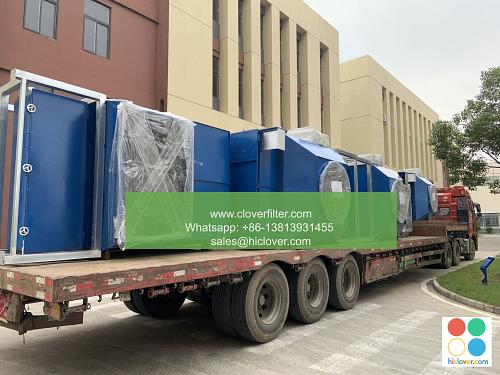The Impact of Air Filter Programs on Indoor Air Quality and Occupant Health

Air filter programs have become an essential component of maintaining good indoor air quality (IAQ) and occupant health in various settings, including commercial buildings, residential homes, and industrial facilities. The purpose of this article is to discuss the significance of air filter programs, their benefits, and their applications in different areas, highlighting the importance of indoor air purification, air quality monitoring, and filtration systems.
Introduction to Air Filter Programs
Air filter programs are designed to remove airborne pollutants, such as particulate matter (PM), gases, and volatile organic compounds (VOCs), from the indoor air. These programs typically involve the use of high-efficiency particulate air (HEPA) filters, activated carbon filters, and other types of air purification systems. The primary goal of air filter programs is to improve IAQ, reduce the risk of respiratory diseases, and create a healthier indoor environment for occupants.
Benefits of Air Filter Programs
The benefits of air filter programs are numerous and well-documented. Some of the most significant advantages include:
- Improved indoor air quality: Air filter programs can remove up to 99.97% of airborne pollutants, including PM, gases, and VOCs, creating a healthier indoor environment.
- Reduced risk of respiratory diseases: By removing airborne pollutants, air filter programs can help reduce the risk of asthma, chronic obstructive pulmonary disease (COPD), and other respiratory conditions.
- Increased productivity: Good IAQ has been shown to improve cognitive function, reduce fatigue, and increase productivity in occupants.
- Cost savings: Air filter programs can help reduce energy costs by improving the efficiency of heating, ventilation, and air conditioning (HVAC) systems.
- Commercial buildings: Air filter programs are essential in commercial buildings, such as offices, retail stores, and restaurants, to maintain good IAQ and reduce the risk of occupational diseases.
- Residential homes: Air filter programs can improve IAQ and reduce the risk of respiratory diseases in residential homes, particularly in areas with high levels of air pollution.
- Industrial facilities: Air filter programs are critical in industrial facilities, such as manufacturing plants and warehouses, to remove airborne pollutants and reduce the risk of occupational diseases.
- Healthcare facilities: Air filter programs are essential in healthcare facilities, such as <b*hospitals and clinics, to maintain good IAQ and reduce the risk of hospital-acquired infections.
Applications of Air Filter Programs
Air filter programs have a wide range of applications in various settings, including:
Conclusion
In conclusion, air filter programs are a crucial component of maintaining good IAQ and occupant health in various settings. By removing airborne pollutants and improving IAQ, air filter programs can reduce the risk of respiratory diseases, increase productivity, and create a healthier indoor environment for occupants. As the importance of indoor air purification, air quality monitoring, and filtration systems continues to grow, it is essential to highlight the various application areas of air filter programs and promote their adoption in different industries and settings.
You haven’t asked a question or provided any context. What would you like to talk about or ask? I’ll do my best to provide a helpful and informative response.

